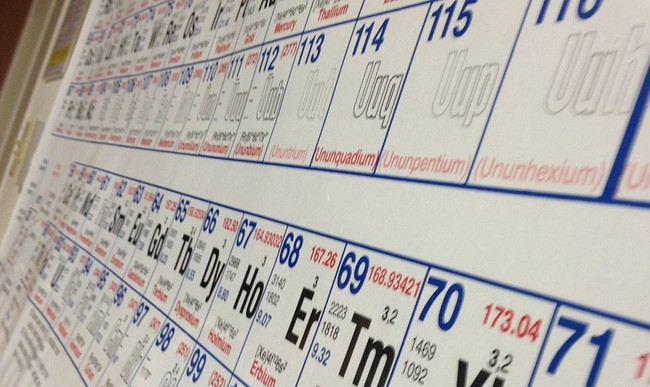
Four new elements were added to the periodic system of chemical elements according to the decision of the International Union of pure and applied chemistry (IUPAC). The decision was taken after the leadership of the Union recognized under the outdoor elements all the required criteria. This is the first Supplement of the periodic table since 2011, and four new elements, finally, completely shut down the seventh row of the periodic system. Especially nice in this story that new elements were discovered by Russian scientists, or with their direct participation.
The first new element was Ununtrium (Uut) under number 113. It was opened in 2004 the Russian-American team of scientists. In the same year a new element was able to synthesize and scientists from the Japanese Institute RIKEN. In the next few years the Japanese managed to repeat this experience twice, so the IUPAC decided to name the element in honor of them. This will be the first element of the periodic system, named in honor of Asian researchers. Most likely, it will be called “ricini”.
“Japanese scientists for this event even far more important than winning gold at the Olympic games”, — shared his emotions Ryoji Noyori, Nobel laureate in chemistry and former President of Institute of RIKEN.
The second element was Ununpentium (Uup) at number 115. It was opened by the same team of researchers in 2003. The guidance of IUPAC agreed that the priority in its discovery belongs to the scientists from the joint Institute for nuclear research (Dubna, Russia) and the Lawrence Livermore national laboratory (USA).
The third new element is Ununseptium (Uus) 117. Russian scientists at the joint Institute for nuclear research managed to get his in 2009. For its synthesis we used the target isotope from the 97-th element obtained at oak ridge national laboratory (USA).
And rounding out the Quartet of Ununoctium (Uuo) under number 118. Initially, his discovery was attributed to the American scientist from Berkeley, but later it turned out that their data were flawed and even falsified. The first real event of the dissolution of the 118th element was recorded by Russian scientists from the JINR in the town Dubna in 2002. Well, we can only congratulate the Russian, American and Japanese researchers with such outstanding achievements.
